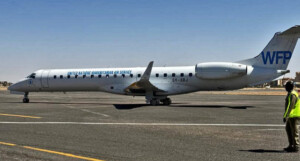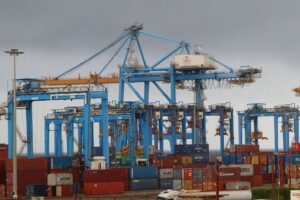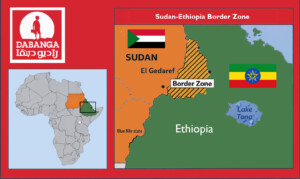Human Rights Watch: UN chief to send ‘white paper’ on Sudan to Security Council

UN Secretary-General António Guterres (File photo: UN)
United Nations Secretary-General Antonio Guterres is expected to alert the Security Council in the coming days that Sudan has entered a downward spiral of extreme conflict-induced hunger, Human Rights Watch (HRW) said yesterday.
“The council should act immediately, including by adopting targeted sanctions against individuals responsible for obstructing aid access in Darfur,” the international human rights organisation stated.
“The Security Council will be formally put on notice that the conflict in Sudan risks spurring the world’s largest hunger crisis,” said Akshaya Kumar, HRW crisis advocacy director.
“The Council just broke months of silence by adopting a resolution on Sudan last week, and should build on that momentum by imposing consequences on those responsible for preventing aid from getting to people who need it.”
The alert will be sent to the Council as a so called “white paper,” drafted by the Office for the Coordination of Humanitarian Affairs (OCHA) in accordance with its mandate under Security Council resolution 2417 to ring the alarm about “the risk of conflict-induced famine and wide-spread food insecurity”.
OCHA’s alert follows multiple warnings by international and Sudanese organisations aid experts that people across the country are dying of hunger.
“It also comes on the heels of Sudan’s Armed Forces (SAF) brazenly escalating its efforts to restrict the movement of humanitarian aid,” HRW said.
“In a 2023 presidential statement, the Security Council reiterated its “strong intention to give its full attention” to information provided by the secretary-general when it is alerted to situations involving conflict induced food insecurity. The council should honour that commitment and convene an open meeting to discuss OCHA’s findings. That could pave the way for decisive action, including sanctions on individuals responsible for obstructing aid delivery.”
Funding shortfalls
Four days ago, the World Food Programme (WFP) warned that its lifesaving programmes in Chad will come to a halt in a matter of weeks. This will force assistance to be suspended in April for 1.2 million Sudanese refugees and crisis-affected people in Chad, due to funding shortfalls.
This year, every second person in Sudan (24.8 million people) will need humanitarian assistance, OCHA stated on January 25, while the funding for the Sudan Humanitarian Response Plan 2024 so far falls 95 per cent short.
Amjad Farid, director of the Sudanese Fikra for Studies and Development organisation, who earlier warned of a famine in the country, told Radio Dabanga correspondent Ashraf Abdelaziz that the announced step of the UN secretary-general is “extremely important for activating international response to the deteriorating humanitarian situation in Sudan.
“We also hope that this step will lead to the Security Council to take decisions that will enable relief workers to do their work safely and as quickly as possible and remove all obstacles and stumbling blocks that hinder their work, by forcing both sides to the conflict to respect international laws.”
Famine
Mohamed Ahmed Omar, expert at the Sudan Platform for Agriculture and Agricultural Security, explained to Radio Dabanga that “Sudan annually needs three million tonnes of wheat, of which 30 per cent is produced and 70 per cent is imported.
“The El Gezira Agricultural Scheme produces about 60 per cent of the local production. Unfortunately, El Gezira is now under control of the Rapid Support Forces (RSF), and the scheme needs all its 1,000 acres of farmland to provide enough food. But it is too dangerous to move even from one village to another. The RSF will not let them harvest the crops from the winter season. Even if farmers could harvest, they would not be able to harvest and transport the crops because of the scarcity of fuel,” he said.
“Failure of the winter season means failure of the wheat harvest, thus increasing the import bill to more than a billion US Dollar, and the government does not have the ability to pay food bills or to finance the coming summer season, which means no production of sorghum and millet.
“All these reasons confirm that the country is heading towards famine.”
Community kitchens
The communications and Internet interruptions that started about 40 days ago has also led to a large food crisis for many people. The blackout severely affected the work of the soup kitchens in Khartoum and several other cities after the war between the Sudanese army and the RSF erupted on April 15 last year.
“Many people had to survive without food, and there are even reports about people who starved to death in their home,” Abdelaziz wrote.
Security Council
Adopting a presidential statement in August 2023, the UN Security Council renewed its “reiterated its commitment to address conflict-induced food insecurity in situations of armed conflict”.
It is the first time that Sudan is highlighted in this type of alert sent from the secretary-general to the Security Council.
“Council members must show leadership by holding open discussions to develop a plan that avoids the risk of mass famine in Sudan and impose targeted sanctions on individuals responsible for obstructing aid,” Kumar, Human Rights Watch crisis advocacy director said. “The people of Sudan need more than words,” he added. “They need food.”











 and then
and then